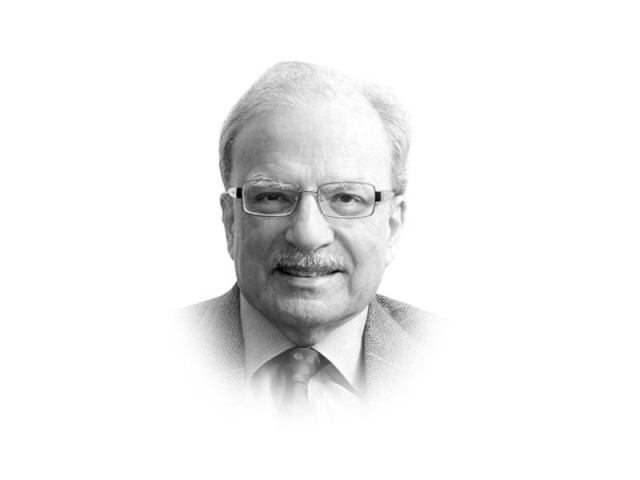Interplay of politics with economics
Armed with more and better data, policymakers would be able to plan a healthier future

The writer is a former caretaker finance minister and served as Vice-President at the World Bank
But more than good data will be needed to move towards a better future. Both policymakers and the citizenry will need to know how politics interacts with the economy. To get to that point, policymakers in the country need to focus on two things. They need to recognise the assets the country has that can speed up the pace of growth and social transformation. And, they need to put in place policies that will help to deploy the resources the country has in some abundance. The sector of agriculture is one such resource. Unfortunately, the policymaking regimes in Pakistan have not given the needed attention to this resource. The only exception was the administration headed by President Muhammad Ayub Khan. But I am getting ahead of the story I want to tell.
Once again the country stands at the cusp of change. Policymaking must pay attention to both politics and economics. It took economists a long time to recognise that politics impacts their discipline. This is especially the case in the systems in which people elect their leaders. Even when they don’t, the man or people in charge can be guided by their own assessment of what the people need and aspire. With this as the preamble, we can begin to answer the question: Where will politics in 2017 take the Pakistani economy. A bit of history will help us to find an appropriate answer.
One way of illustrating the importance of politics in the making of economic policy is to pick up on one aspect of the discourse that has begun as the country heads towards another election. Pakistan will have to hold the next general election in about a year’s time. Those who govern at this time will be required to explain their performance since they assumed the reins of power after the elections in May 2013. They will do well in the polls if people are convinced that they have delivered on the promises they made.
Those who won the election last time around promised to heal the economy by addressing a number of crises that had resulted in slow growth, poor distribution of incremental income and wealth and loss of confidence by the investor community. They said that “three Es” would be the focus of their attention. They were economic revival, energy shortage, and persistent extremism.
Economic revival was a broad subject and needed government’s action on a number of fronts. Soon after taking office, Islamabad chose to go to the International Monetary Fund for emergency funds. The administration that had governed the country in the previous five-year period had left the financial situation in a mess. The Fund’s help was sought which came as was to be expected with policy–strings attached. For the Washington-based institution the most important part of economic reform was the management of public finance. The government had to spend within the bounds available to it in terms of domestic and foreign resources. Islamabad promised to observe this simple rule. However, since a number of earlier IMF programmes were not completed because the government of the day was unable to abide by the conditions associated with the programme, the 2013 agreement came with a tight leash. The Fund would only release its money after carrying out quarterly reviews. These were done and releases to the credit of the government remained on schedule and the programme was successfully concluded.
There is a reason why I am recounting this experience in a discussion of the interplay between politics and economics. The government’s financial situation would be even better if it did not have to meet the heavy losses incurred by some state-owned enterprises. Enormous losses are being made by a number of publicly-owned entities such as the Pakistan International Airlines, the Karachi Steel Mill, and the Railways. The current set of rulers had promised that the burden carried by the state to keep afloat these and other enterprises would be eased by their partial or full privatisation. This has not been done since these entities were used by the past administrations to give employment to their supporters. PIA employs tens of thousands more people that it should. So do the Railways and the Steel Mill. Privatising them would mean throwing out thousands upon thousands of people and putting them on the road. Would that be a politically wise course to adopt? When urban violence and terrorism is a major problem faced by the country, would it be appropriate to add so much anger to the already disturbed street? The answer is obvious. This is one example of how politics enters the domain of economic policymaking.
Published in The Express Tribune, March 13th, 2017.
Like Opinion & Editorial on Facebook, follow @ETOpEd on Twitter to receive all updates on all our daily pieces.















COMMENTS
Comments are moderated and generally will be posted if they are on-topic and not abusive.
For more information, please see our Comments FAQ